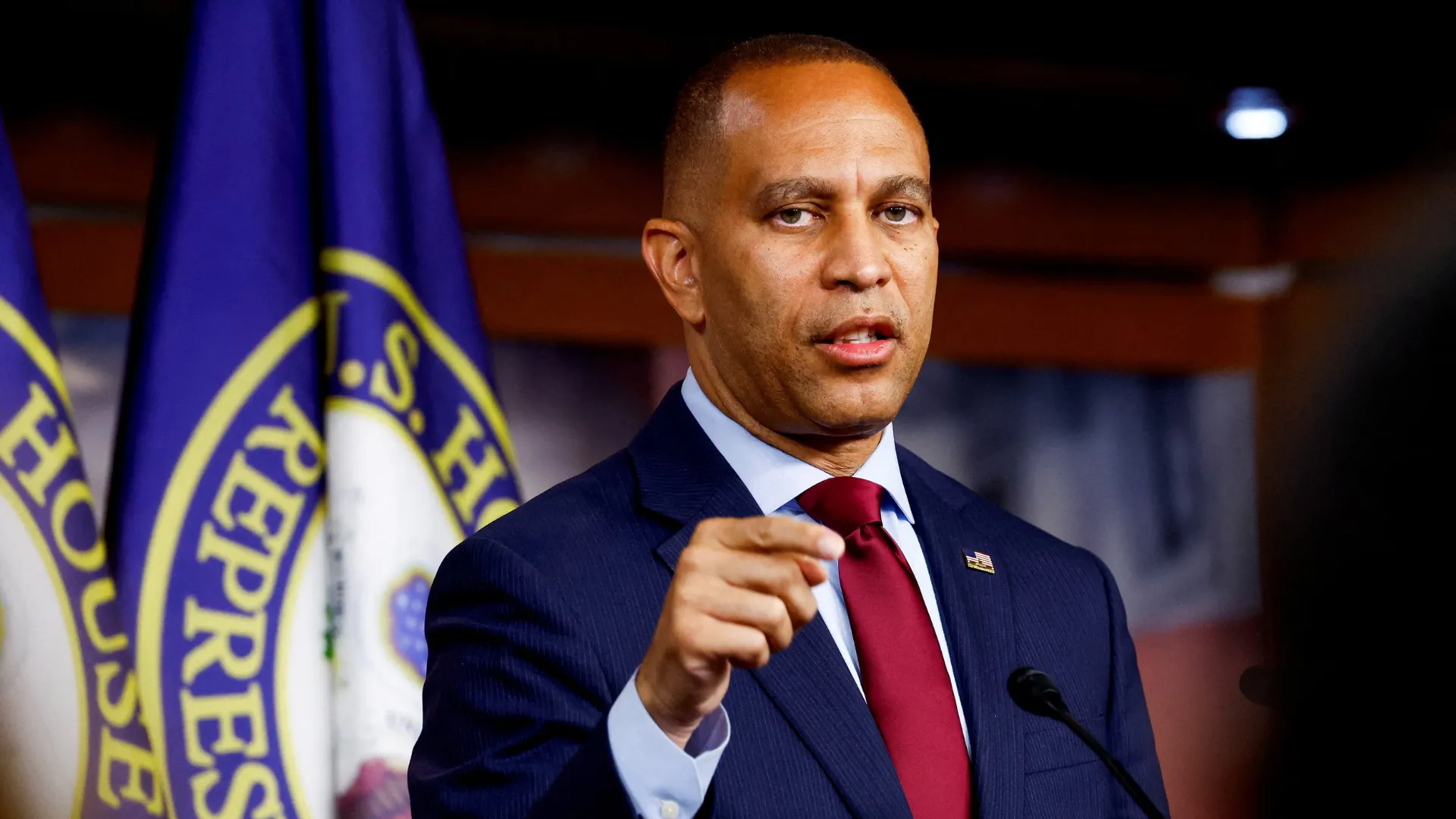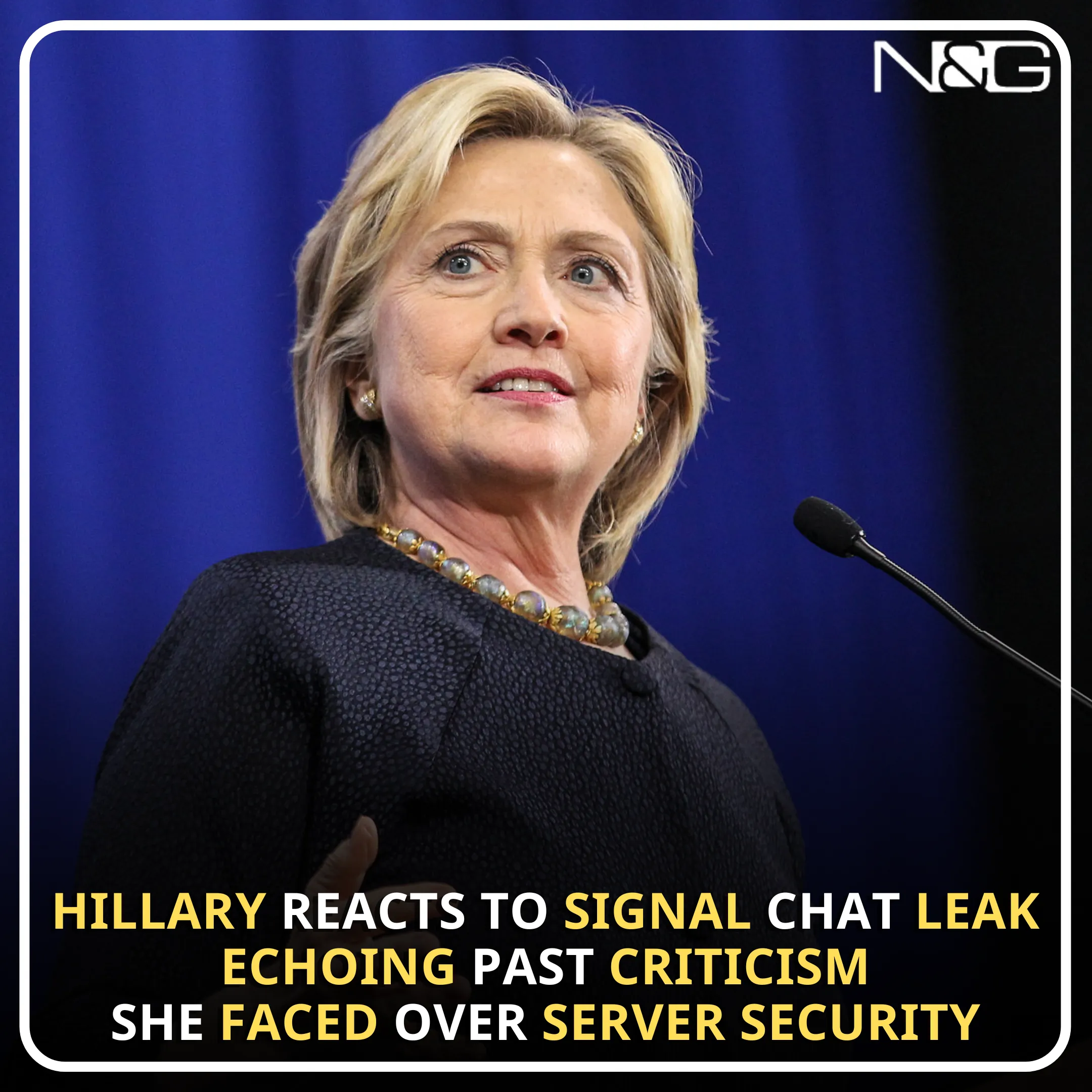
President Donald Trump delivered a fiery defense of his sweeping tariff strategy on Monday, dismissing mounting criticism from financial experts, political allies, and Wall Street insiders while coining a new term for his detractors: “Panicans.”
In a post on Truth Social, Trump rebuffed concerns that his economic moves are triggering volatility in global markets, urging Americans to stay strong and patient in the face of a sharp downturn.
“The United States has a chance to do something that should have been done DECADES AGO,” Trump wrote.
“Don’t be Weak! Don’t be Stupid! Don’t be a PANICAN (A new party based on Weak and Stupid people!). Be Strong, Courageous, and Patient, and GREATNESS will be the result!”
The post came just hours after the stock market opened to steep losses, with the Dow Jones Industrial Average plunging more than 1,500 points within minutes of trading on Monday morning.
The drop followed two days of historic declines, with the Dow shedding nearly 4,000 points in total since Trump announced the tariff plan last Wednesday.
Critics are warning that the strategy—massive and wide-ranging tariffs on nearly every country exporting goods to the U.S.—could throw the economy into a tailspin, increasing consumer prices, slowing business investment, and potentially triggering a recession.
Financial markets responded swiftly and harshly to Trump’s tariff announcement, with investors scrambling to reassess risk in an increasingly uncertain global trade environment.
Billionaire hedge fund manager Bill Ackman, a former Trump supporter, sounded the alarm on Sunday, writing that the administration's aggressive trade stance could “cause the economy to collapse” and would ultimately hurt the very voters who helped elect Trump in 2016 and 2020.
“Business is a confidence game,” Ackman wrote on X. “The president is losing the confidence of business leaders around the globe.”
Ackman’s warning was echoed by CNBC host Jim Cramer, who invoked the specter of Black Monday, the October 1987 stock market crash that wiped out over 22% of the Dow's value in a single day.
“If this continues, we could be heading toward a Black Monday scenario,” Cramer said during a Sunday night special segment. “This is serious. We’re seeing a crisis of confidence taking hold.”
Trump’s new policy, unveiled last week, would impose across-the-board tariffs on a vast range of imports, affecting trade relationships with allies and adversaries alike.
While the administration claims the goal is to protect American manufacturing and encourage domestic job growth, critics argue that the plan is both too broad and too blunt.
According to initial details, tariffs would apply to electronics, automobiles, food products, raw materials, and pharmaceuticals, among other categories.
Countries across Europe, Asia, and Latin America would be subject to the new rules, with few exceptions.
White House officials have attempted to reassure the public and financial markets, insisting that the tariffs are necessary to correct decades of trade imbalance and that they will ultimately result in more American jobs, greater economic independence, and long-term prosperity.
But investors are unconvinced. Market analysts note that sudden, sweeping changes to trade policy—particularly when implemented unilaterally—can cause ripple effects throughout global supply chains and introduce instability to every corner of the economy.
Trump’s use of the term “Panican” has quickly become a point of discussion—both among his supporters and his critics.
In his Truth Social post, the former president described “Panicans” as a group of people characterized by weakness and fear, accusing them of undermining America’s chance at long-term greatness.
For Trump’s base, the message resonates as another call to defy the so-called “establishment” and trust in his unorthodox methods.
But for economists and moderate Republicans, the tone and timing of the message have raised concerns.
“We are in a very fragile moment,” said Jennifer Lee, a senior analyst at BMO Economics. “The market isn’t panicking because it’s weak—it’s panicking because the policy is aggressive, unpredictable, and economically risky.”
Several GOP lawmakers, including those from key swing states, have privately expressed unease about the escalating economic consequences, particularly with the 2024 election looming.
While few have publicly broken with Trump, insiders suggest the issue is becoming harder to ignore.
In past years, Trump has maintained relatively strong support from major business leaders, many of whom backed his corporate tax cuts and regulatory rollbacks.
But the tone has changed dramatically in recent days, with corporate CEOs warning that the tariffs could force them to increase prices, delay hiring, or cut operations.
“We support fair trade,” said Maria Rizzo, CEO of a major consumer goods company. “But these new tariffs don’t feel targeted—they feel punitive, and we’re the ones caught in the crossfire.”
Even traditionally pro-Trump figures in the business world are starting to hedge.
“This could undo a lot of the growth we’ve seen over the last few years,” said one hedge fund manager, speaking anonymously.
“It’s hard to make long-term decisions when you don’t know what policy is coming next.”
While the White House insists the tariffs will bring jobs home, economists warn they could have the opposite effect in the short term.
As the cost of imported goods rises, businesses may be forced to increase prices or absorb costs—both of which could reduce hiring and expansion.
For consumers, the squeeze could be felt quickly. Products ranging from cars and electronics to groceries and medicine are likely to see price hikes. And in an already inflation-sensitive environment, that’s raising red flags.
“Most businesses aren’t in a position to eat those costs,” said Erica Tomlinson, an economist at the Brookings Institution. “The average consumer is going to feel this, and they’re going to feel it soon.”
For Trump, the tariff strategy is part of a broader vision—one rooted in nationalism, economic self-reliance, and a rejection of traditional globalism.
It’s a message that has resonated with many voters in the Rust Belt and across manufacturing-heavy regions that have seen decades of job losses.
“This is what strength looks like,” Trump said in a separate post on Monday afternoon. “We are putting America FIRST again.”
His supporters echo that sentiment.
“He’s the only one willing to stand up and actually fight,” said Tom Richards, a small business owner in Ohio. “People don’t like it because it’s not business as usual. That’s exactly why we elected him.”
But the question now is whether Trump’s economic gamble will pay off—or whether the backlash, both from the markets and his own party, will grow louder.
As markets continue to fall and pressure mounts, the White House faces a choice: double down on the tariff plan or attempt to recalibrate. So far, all signals suggest the former.
The president appears to be betting that Americans will tolerate short-term pain for what he sees as long-term gain.
And he’s asking them to have faith in his vision—even as economic indicators flash warning signs.

What remains uncertain is how much patience investors, businesses, and voters have left.
“Faith is not a policy,” said Richard Caldwell, a political historian at Georgetown University. “And history is unkind to those who mistake disruption for strategy.”






